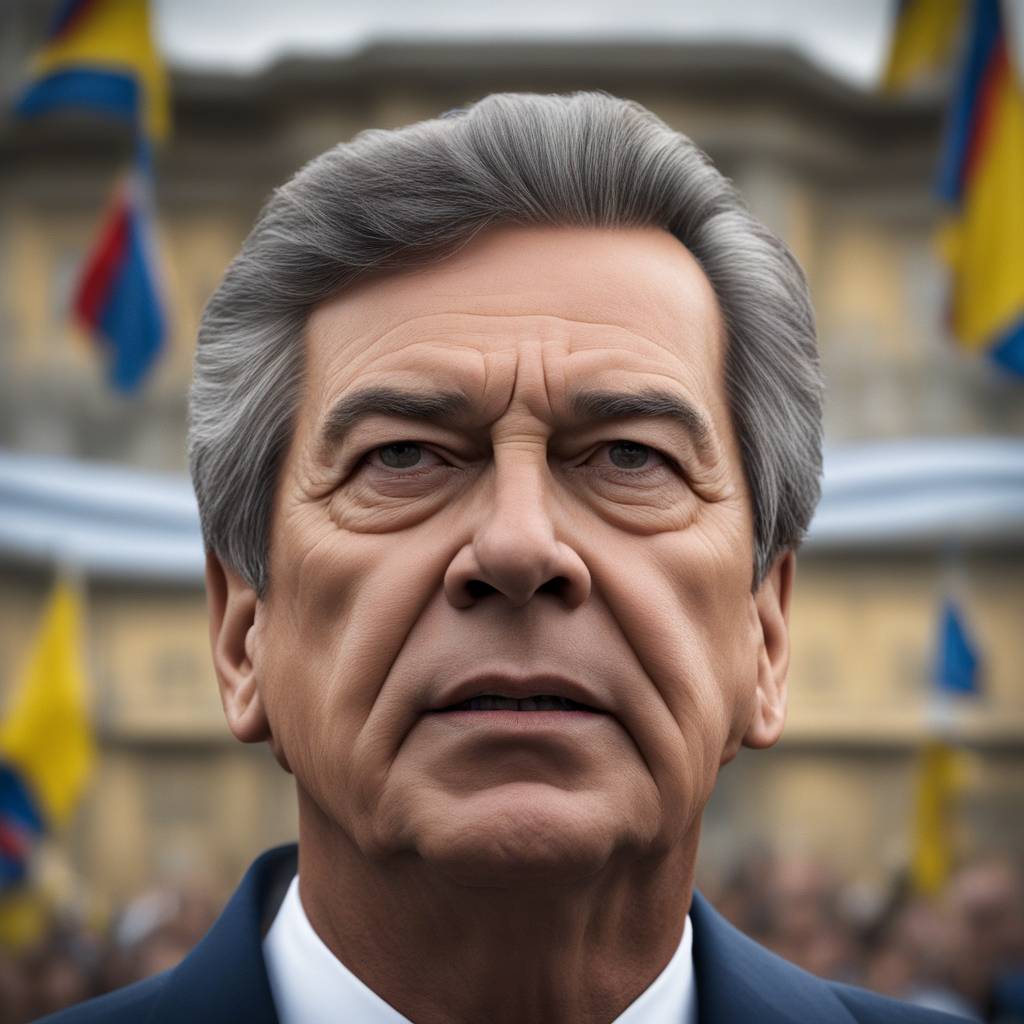Álvaro Uribe, the influential former President of Colombia, is facing trial for witness tampering, a case that has cast a shadow over his legacy. In a video message, Uribe vehemently denied the charges, calling them “political vengeance” and stating that there is no evidence against him. The charges stem from allegations made a decade ago by an opposition senator claiming that Uribe had ties to a paramilitary group. It is alleged that Uribe bribed former paramilitaries to change their testimonies. Despite previous attempts to close the case, Uribe now faces the possibility of becoming the first former president in Colombia to stand trial.
In 2020, Uribe was placed under house arrest for two months in relation to this case. The charges against him include bribery of witnesses in criminal proceedings and procedural fraud, which could potentially result in a lengthy prison sentence. Uribe has vehemently denied the accusations, claiming that the trial is based on political presumptions, personal animosities, and revenge, rather than concrete evidence of wrongdoing. The Supreme Court dismissed a case brought against him by the opposition senator, leading to a criminal case being opened against Uribe on allegations of witness manipulation.
Despite previous attempts by Colombian prosecutors to close the case, criminal judges have rejected their requests, leading to the formal decision to charge Uribe. If found guilty, Uribe could face up to 12 years in prison for bribing witnesses and an additional eight years for procedural fraud. The case has sparked controversy and debate in Colombia, with supporters of Uribe claiming that he is being unfairly targeted and that the charges are politically motivated. The outcome of the trial will have significant implications for the country’s political landscape and the legacy of Uribe, who served as president from 2002 to 2010.
The case against Uribe has its origins in allegations made by an opposition senator a decade ago, implicating Uribe in the creation of a paramilitary group. These allegations led to a series of legal battles, with the Supreme Court ultimately opening a criminal case against the former president. Despite claims of political vengeance and lack of evidence, Uribe now faces the prospect of trial for charges that could result in a lengthy prison sentence. The case has divided public opinion in Colombia, with some viewing Uribe as a victim of political persecution, while others see the trial as a necessary step towards accountability and justice.
As the first former president in Colombia to face trial, Álvaro Uribe’s case has significant implications for the country’s political landscape and legal system. The charges of witness tampering and procedural fraud have raised questions about the former president’s conduct and integrity, as well as the fairness and impartiality of the judicial system. Uribe’s denial of the charges as political vengeance and lack of evidence will be put to the test in the upcoming trial, which could potentially reshape his legacy and impact Colombia’s future political direction. The outcome of the trial will be closely watched both within Colombia and internationally, as it sets a precedent for holding high-ranking officials accountable for their actions.













